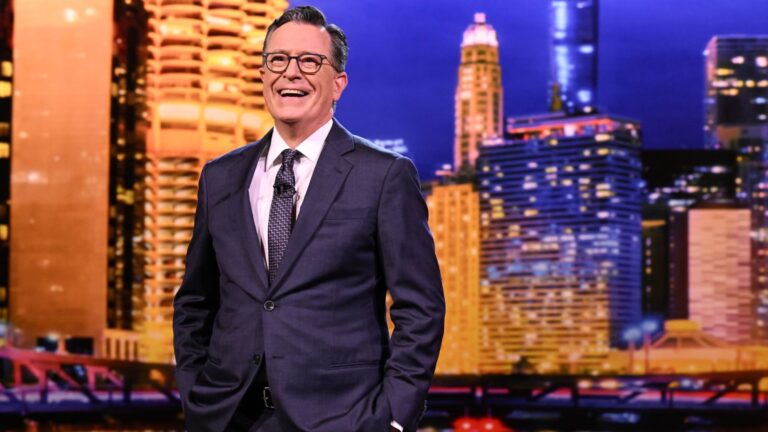CBS Cancels "The Late Show" with Stephen Colbert: Financial Reasons or Political Motives?
CBS’s recent decision to cancel "The Late Show" hosted by Stephen Colbert has sparked widespread speculation and controversy. Officially, the network claims financial considerations are behind the cancellation, but many Colbert fans and political observers question this narrative.
A Questionable Justification
CBS’s official statement cited “purely a financial decision against a challenging backdrop in late night” as the reason for Colbert’s exit. The network emphasized that the cancellation was unrelated to the show’s performance or content. However, critics suggest that such an assertion lacks credibility.
Industry Reactions
-
Oliver Darcy, a left-leaning media reporter, indicated skepticism about CBS’s claim on his podcast Power Lines, stating, “About zero people believe that.” Darcy discussed the ramifications of this decision with his co-host Jon Passantino, who noted the significance of Colbert being one of CBS’s biggest stars.
- Passantino remarked on the gravity of CBS’s choice, reading directly from the network’s statement while doubting its sincerity. He said, “This is a big deal… to make this decision that one of your network’s biggest stars is now going to be departing.”
Financial Nuances
While some speculate about the financial viability of “The Late Show,” reports suggest that the show has been losing $40 million a year. This raises the question of whether losses of this scale were a significant factor behind its abrupt cancellation, despite popular belief that it was still generating a loyal viewership.
Unearthing the Settlement
The timing of the cancellation raises eyebrows, particularly as it coincided with CBS’s parent company, Paramount Global, settling a $20 billion lawsuit with former President Donald Trump for a mere $16 million. This lawsuit related to an interview editing controversy surrounding Vice President Kamala Harris on CBS’s 60 Minutes. The settlement was not only financially strategic but also appeared geared towards securing government approval for Paramount’s crucial merger with Skydance Media.
Speculations on Merger Influences
Industry insiders speculate that the settlement might involve undisclosed arrangements, such as Paramount potentially donating additional funds for public service announcements that align with Trump’s interests.
The New Direction Under Skydance Media
Reports indicate that Skydance Media, headed by David Ellison, may look to alter the ideological landscape of CBS programming. Ellison is believed to advocate for eliminating what he terms as the “liberal taint” at CBS, suggesting a possible shift toward more diverse viewpoints in the network’s editorial decisions.
"Skydance will ensure CBS’s editorial decision-making reflects the varied ideological perspectives of American viewers," said Ellison in a memo summarizing his meeting regarding the merger.
Political Ramifications
The political undertones surrounding Colbert’s show cancellation gained traction after Colbert publicly criticized CBS’s settlement with Trump only days prior to the announcement.
Voices from the Political Sphere
Prominent Democrats, including Senator Elizabeth Warren and Representative Adam Schiff, expressed concern over possible political motivations behind the decision.
- Warren tweeted, “CBS canceled Colbert’s show just THREE DAYS after he called out CBS for its $16M settlement with Trump. This looks like bribery.”
- Schiff added, “If Paramount ended the Late Show for political reasons, the public deserves to know."
Industry Perspectives
The ramifications of this decision extend beyond just Colbert’s late-night show. With the Skydance deal approaching finalization, CBS could witness a broader reconfiguration of its network, potentially affecting shows with political leanings.
Likely Future Changes
Puck Media reported that Skydance executives are considering the return of David Rhodes, a former CBS News executive, to oversee operations. Alongside him, Bari Weiss, founder of the Free Press, is speculated to help realign CBS’s news division to appeal to a wider audience, moving away from perceived biases.
Conclusion
As CBS navigates these significant changes, the cancellation of "The Late Show" serves as a pivotal moment not only for the late-night television landscape but also for the broader relationship between media, politics, and financial interests.
As discussions continue, industry observers remain watchful of how these strategic shifts will define the future of broadcast media.
Stay Informed
For more insights on media and political dynamics, refer to sources like CBS News, Puck Media, and other relevant outlets for updates on this evolving story.


